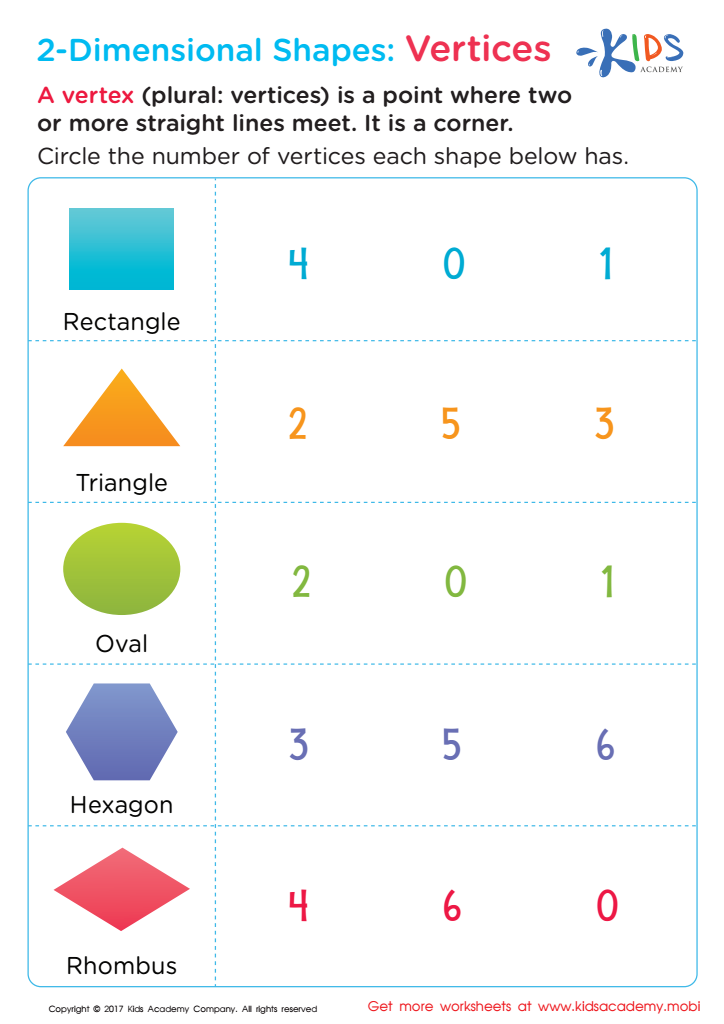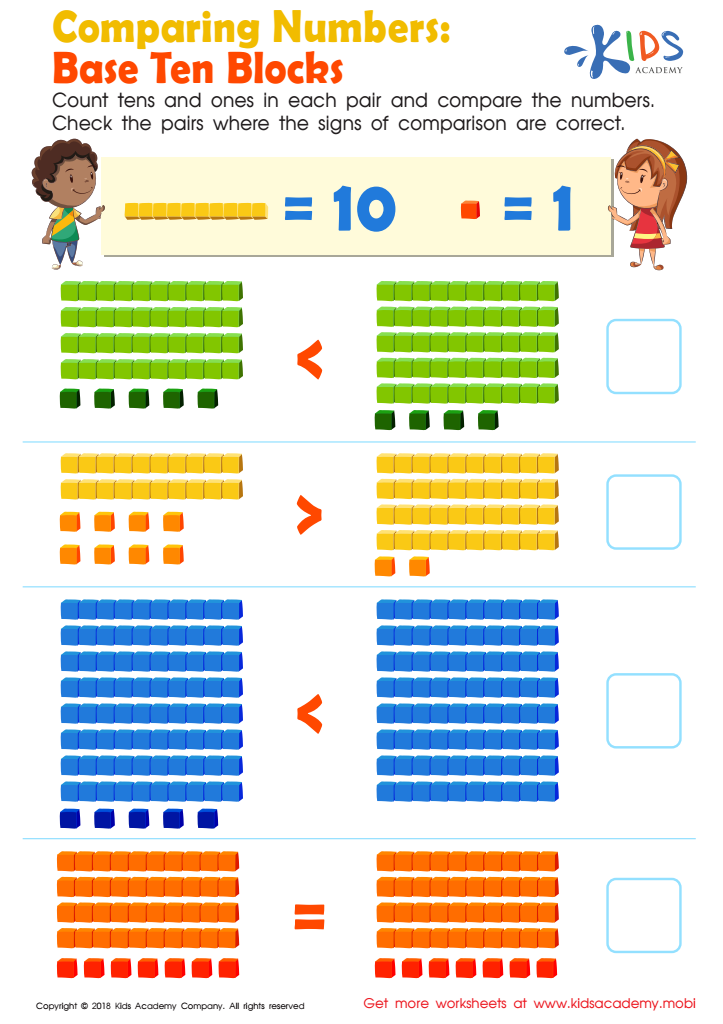Counting skills improvement Math Worksheets for Ages 6-7
3 filtered results
-
From - To
Boost your child's counting confidence with our expertly crafted Math Worksheets designed for ages 6-7. These engaging activities focus on enhancing essential counting skills through fun and interactive exercises. Whether practicing number sequences, understanding place values, or exploring skip counting, our worksheets cater to every child's learning pace. Each worksheet is designed to build a strong mathematical foundation, instilling crucial skills that are vital for future academic success. Download now from Kids Academy to provide your child with the tools they need to excel in math, fostering both competence and a love for learning numbers.


Two–Dimensional Shapes: Vertices Printable


Comparing Numbers: Base Ten Blocks Worksheet
Teaching counting skills to children aged 6-7 is essential for their overall mathematical development and future academic success. At this formative age, children’s brains are highly adept at absorbing new information and forming fundamental cognitive connections.
Counting skills serve as the building blocks for more complex math concepts. By mastering counting, children gain a stronger grasp of numbers, which helps them understand addition, subtraction, and basic arithmetic operations more easily. These early skills lay the foundation for future math learning, enabling them to tackle more advanced topics with confidence.
Moreover, improving counting skills fosters logical thinking and problem-solving abilities. It helps children recognize patterns, make comparisons, and understand sequences—all of which are crucial not just in math, but in everyday decision-making processes as well.
Additionally, counting has practical, day-to-day applications that make life easier for children and their families, such as telling time, handling money, and following recipes. Strong numerical skills impacted by counting proficiency also positively influence children’s self-esteem, as they gain confidence from successfully learning and applying these concepts.
For teachers, focusing on counting skills ensures well-rounded numeracy development. For parents, it’s an opportunity to engage with their child’s early education and provide a strong support system that fosters a lifelong love of learning and academic success.
 Assign to My Students
Assign to My Students















